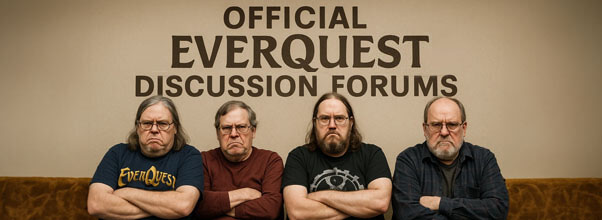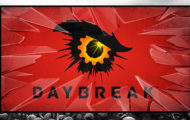In the early days of any online community, there’s a spark: shared enthusiasm, fresh ideas, and a sense of possibility. But as time passes, communities change. Some evolve, others ossify. Many slowly fall into predictable patterns—ritual, resistance to change, and finally, decay. This article outlines the lifecycle stages of an online community, using the official EverQuest forums as a living case study in how even beloved institutions can lose their vitality.
1. Genesis Stage: The Pioneers
Key Traits: Passion, chaos, open-ended creativity
Community Feel: Energized, experimental, a little messy
The developers are active participants in the forums. There’s a sense of excitement and anticipation—we’re all in this together. Everyone, from the devs to the players, is contributing to something new.
Every community begins with a founding generation. These are the builders and dreamers. In the early days of EverQuest (1999–2002), the forums were filled with explorers exchanging ideas, lore, and technical workarounds. Developers sometimes joined in. Nobody had a roadmap—only a shared mission.
This was EverQuest’s most generative period: the forums felt like a digital frontier town with fireside chats about dragons, patch notes, and server-wide mysteries.
Every community begins with a founding generation. These are the builders and dreamers. In the early days of EverQuest (1999–2001), the forums were filled with explorers exchanging ideas, lore, and technical workarounds. Developers sometimes joined in. Nobody had a roadmap—only a shared mission.
This was EverQuest’s most generative period: the forums felt like a digital frontier town with fireside chats about dragons, patch notes, and server-wide mysteries.
2. Growth Stage: The Golden Age
Key Traits: Creative surge, high participation, strong leadership
Community Feel: Vibrant, expanding, self-correcting
With popularity comes structure. Forum moderators emerge, rules are written, and community rituals form. During EverQuest’s peak years (2002–2004), the forums were a rich mix of gameplay discussion, roleplay, and theorycrafting. Clans recruited, strategies were honed, and lore was hotly debated.
This was also the era when Sony Online Entertainment actively participated—fostering a sense that developers and players were in it together.
3. Stabilization Stage: Institutional Memory
Key Traits: Predictable patterns, formal moderation, fading novelty
Community Feel: Confident but settled
Cliques begin to form among forum participants. Some users engage in white-knighting behavior, defending the developers at every turn in hopes of currying favor. When important critiques are raised, the white knights circle the wagons and shut down dissent. Community Managers (CMs) and moderators start to take on the role of demigods—respected, feared, and above reproach.
In EverQuest’s case, having a personal relationship with a CM like Angeliana can mean the difference between being heard or being warned, banned, or quietly erased. Over time, certain forum members become intimate friends with the moderators, creating an informal inner circle.
As the community ages, the forums take on a kind of metagame. In EverQuest, this became known as “ForumQuest”—a social strategy game where savvy users learn how to game the system, survive moderation, and subtly get their ideas in front of the devs.
By the mid-2000s as Blizzard’s World of Warcract captured the crown and became a juggernaut, the EverQuest forums had matured thanks to loyalists who didn’t migrate to WoW. New players joined less frequently. Old arguments were rehashed. Veterans began to assert themselves as authorities. This stage marks the transition from dynamic growth to preservation: FAQs replace dialogue, and “how things are done” begins to eclipse “what could be.”
4. Devotion Circle Stage: Orthodoxy Over Curiosity
Key Traits: Dogma, gatekeeping, worship of tradition
Community Feel: Defensive, ritualized, emotionally rigid
At this stage, the forums become actively hostile to new voices. A new member might post thoughtful feedback or raise a fresh perspective, only to be immediately shut down:
This hostility discourages new participation and reinforces a toxic pecking order. Players who offer thoughtful, good-faith suggestions are often met with sarcasm, condescension, or outright dismissal. Over time, they stop posting altogether—not because they stopped caring, but because the social cost of participation became too high. The forum elitists win by attrition, driving out the very people most capable of helping the game grow.
New Player: “Here’s some feedback that might be useful about a certain topic.”
Forum Regulars: “We’ve discussed that thousands of times before. What’s wrong with you?”
This hostility discourages new participation and reinforces a toxic pecking order. Players who offer thoughtful, good-faith suggestions are often met with sarcasm, condescension, or outright dismissal. An enforcer mentality emerges, with forum regulars acting like self-appointed gatekeepers—bullying or badgering anyone who dares to question the status quo. Over time, these tactics wear down contributors until they stop posting altogether—not because they stopped caring, but because the social cost of participation became too high. The forum elitists win by attrition, driving out the very people most capable of helping the game grow.
New ideas are viewed with suspicion. Even discussing innovation is seen as disrespect. The past isn’t just remembered—it’s canonized. And dissent isn’t just unwelcome—it’s morally suspect.
“If you don’t like it quit!” becomes the standard retort.
This is the Devotion Circle—a stage where loyalty has replaced creativity, and orthodoxy has replaced inquiry.
This is where EverQuest’s forums live today. Any suggestion that EQ should evolve or compete with modern MMOs is treated as heresy. Criticism—even respectful, well-argued critique—is labeled as trolling. Longtime players form an inner circle of “true believers,” enforcing a mindset where survival is seen as proof of greatness.
5. Hollowing Stage: Ritual Without Vitality
Key Traits: Repetitive content, low activity, cultural decay
Community Feel: Nostalgic, tired, performative
In the hollowing phase, developers have effectively checked out. Communication stops. They no longer see themselves as part of the community—but as distant overlords, issuing occasional decrees via patch notes. On the EverQuest forums, this has been the reality for the past three years: zero developer participation, no responses, no dialogue. The absence is palpable.
Here, posts recycle old themes. The same handful of users dominate every thread. The development team is largely absent, and patch notes are boilerplate. Suggestions for innovation fade. Instead of dialogue, there’s ritual: people show up out of habit, not engagement.
In EverQuest’s case, many forum regulars seem to measure success not by improvements or new players, but by mere existence. EQ’s survival becomes the ultimate defense: “We’re still here,” as if that’s the goal.
6. Necropolis Stage: Undead but Online
Key Traits: Silence, irony, historical posting, ghost-town energy
Community Feel: Haunted, posthumous
The final stage. The forum still exists, but no longer lives. Replies are rare. New posts are eulogies or lore dig-ups. Moderators fade. The community isn’t dead, but embalmed—preserved by nostalgia and automated logins.
Some users log in out of reflex. Others visit to remember. But no one builds anymore.
Additional Wisdom from the MUD Era
Many early EverQuest players recognized the game’s roots in MUDs (Multi-User Dungeons), and one particularly influential document from that era—The Mudwimping Guide—offered timeless advice on how to maintain and evolve healthy online communities. Several of its core insights remain relevant today:
- Communicate Clearly: The guide warned against excessive jargon and insider lingo, which can alienate newcomers and fuel cliquishness. Clarity fosters accessibility and inclusivity.
- Beware of Power Hoarding: It emphasized that unchecked social hierarchies lead to gatekeeping and stagnation. As we’ve seen in modern communities like EverQuest’s, friendships with moderators or developers can turn into unofficial channels of influence, which distorts fairness and merit.
- Support Constructive Criticism: Mudwimping encouraged open, respectful disagreement. Without it, communities risk becoming echo chambers—something that plagues many aging online forums.
- Prevent Burnout: The guide noted that overburdening moderators or placing too much weight on a few vocal users can lead to exhaustion and dysfunction.
By revisiting early wisdom like The Mudwimping Guide, we’re reminded that the best communities are those that remain open, humble, and adaptable.
Conclusion: Communities Deserve More Than Survival
EverQuest still has passionate fans. But passion without direction is not enough. When critique is shamed, and curiosity punished, a community stops being alive. It becomes a devotion circle—a shrine to the past, more interested in defending its own mythology than building a future.
Forums today are often ceremonial—performative spaces maintained out of obligation, not real engagement. Increasingly, there’s a corrosive shift in the customer–provider relationship. In gaming—and beyond, from the DMV to Congress—we now see warning signs everywhere: “Do not abuse our staff.” The implicit message? You’re lucky we even showed up.
This inversion of service culture turns the player into a threat, not a valued stakeholder. The old adage that “the customer is always right” has been replaced by institutional defensiveness. Studios forget that players are not just users—they are customers, patrons, and co-creators of the game’s world. This toxic dynamic further isolates developers from the people they’re meant to serve. Most companies don’t even like their forums. They treat them as PR liabilities, not opportunities. Developers have grown increasingly insulated. A new generation of devs, raised in a culture of trigger warnings and emotional shielding, often lacks the thick skin required to engage with a passionate—sometimes critical—player base.
That creates a feedback loop of silence: devs withdraw, the community grows resentful, the forums turn toxic, and leadership uses the toxicity as an excuse to disengage further. The forums become haunted—empty halls echoing with arguments from five years ago.
But it doesn’t have to end this way.
To prevent the descent into stagnation, online gaming communities—and the studios behind them—must:
- Lead with goodwill: Studios and community managers should go on a charm offensive. Small, frequent gestures—acknowledging player contributions, celebrating community milestones, replying sincerely—can rebuild trust. A simple sign of life from a dev can reignite hope. Instead, too many adopt a detached, “not my job” attitude that breeds resentment.
- Re-engage honestly: Developers should show up, not as gods, but as collaborators. Drop the PR tone. Talk like humans.
- Welcome new voices: Gatekeeping drives out the very people who could bring renewal. Make room for curiosity.
- Revisit old wisdom: Documents like The Mudwimping Guide warned about power hoarding, opaque rules, and cliques decades ago—and they were right.
- Tolerate discomfort: Criticism is not harassment. Disagreement is not toxicity. Studios need to relearn how to work in public.
A great community doesn’t just survive—it fights to stay alive in spirit, not just in structure. And here’s a hard truth: you get the forums you deserve. Forums reflect the tone, leadership, and effort of the companies that host them. If they’re neglected, defensive, or toxic, the blame lies not with the players—but with the people at the top. The buck stops with the studio. That means taking risks, breaking habits, and inviting dissent.
It’s not disloyal to want more from something you love.
It’s disloyal to pretend rot is resilience.
—Wolfshead





The lessons, experiences and theories how to avoid forum degeneration and related issues were already known back in the day, but have they ever been applied?
It seems every generation has to rediscover this from scratch and make the same mistakes.
For the EQ forums, it is too late. That’s like kicking the bones of a dinosaur and urging it to get up. I know you are passionate about EQ, but I also repeatedly told me how much it hurts me to see that you still burn with so much love for a long lost love. There are miracles more likely to happen that EQ returning to a fraction of its former glory.
What I am missing are the vibrant discussions in the blogosphere and blogs themselves. Modern day social media are more someone is shouting, others are following and liking thing. There is very little discussion, it is a one-way communication for the most part. As much as I loved Twitter and now love again X, discussion and debate between people isn’t its forte. Facebook and Instagram and others don’t do any better, unfortunately. I quite like Google Circles but people who could have used it didn’t and activists were not finding enough people to yell their messages at. A pity, Google never understood what they could have made of this platform. And the new CEO Pichai and the inner circle around Larry Page absolutely had no problem to kill what was mostly the brainchild of former bighead Gundotra.
Today we no longer discuss mechanics and stuff online, we are fighting a war against wokeness and activists pushing their agenda on games. Bad times!
SOE was always a poor run studio. They’ve been running their forum into the ground for years.
I’m using EQ as a case study on what not to do. The WoW forums are also bad as well. Woke faggots have figured out how to game the system by mass reporting posts.
The days of MMORPG blogs are over. Most of the interesting people were gone within a year or two of WoW being released.